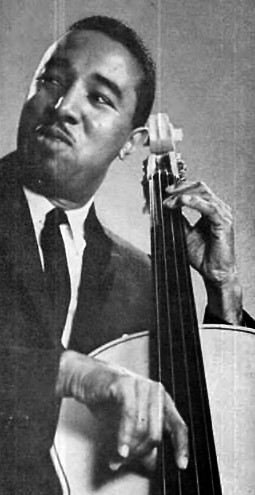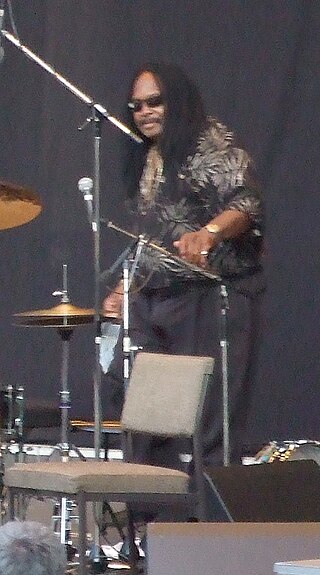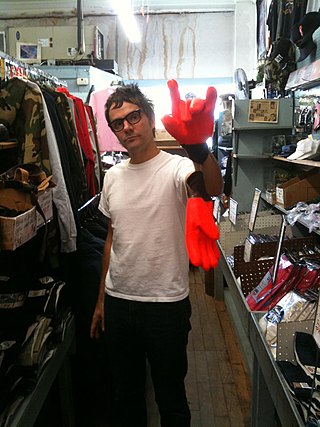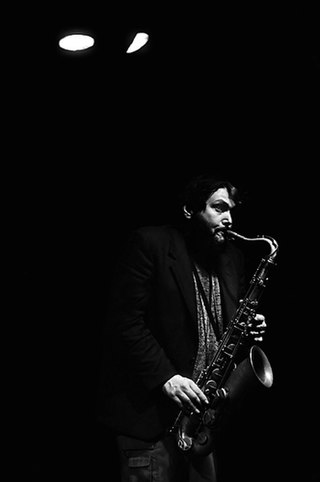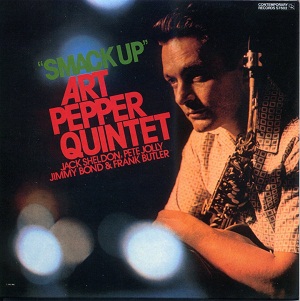Plot
In 1964, Guy Patterson, an aspiring jazz drummer, is working in his family's appliance store in Erie, Pennsylvania, when he is asked by friends Jimmy and Lenny to perform a song Jimmy wrote at a talent show with their band to cover for their regular drummer Chad, who broke his arm. Prior to the talent show, they rehearse the song, a slow-tempo ballad called "That Thing You Do!", in Jimmy's garage. Needing a name for the band, Jimmy's girlfriend Faye proposes "The Oneders", a play on the Beatles.
At the talent show, Guy launches the song, but at a much faster tempo than what they did in the garage. Despite Jimmy telling Guy to slow down, he and Lenny adapt and they win the competition, much to Jimmy's chagrin.
They win a paying gig at Villapiano's, a local pizza parlor. When a fan asks for a record, they decide to record the song and sell 45s of it, through the help of Guy's Uncle Bob. Local talent promoter Phil Horace notices the band, promising to get them on the radio within ten days. Lenny convinces the band to sign with him.
Phil gets the song played on Pennsylvania radio, and books them at a rock & roll showcase concert in Pittsburgh. Because of technical difficulties, and their lack of stagecraft, they are booed off the stage. Afterward, Phil brings a dispirited Guy to meet with Mr. White, an A&R representative for Play-Tone Records, who offers the band a contract and becomes their manager. He renames the band "the Wonders" (as many people had mispronounced "Oneders" as "Oh-nee-ders"), offers them advice on style and presentation (including insisting that the group all wear matching suits and Guy always wear sunglasses), asks them to join the Play-Tone tour of Midwestern state fairs, and suggests Jimmy's girlfriend Faye join the tour maintaining their wardrobe.
During the tour, the Wonders meet other acts, learn about the business, and become better performers. Jimmy spends time with a singer, Diane, while the bassist, T.B., falls for a member of a girl group, the Chantrellines. "That Thing You Do!" garners national radio airplay and the band's popularity soars. Jimmy is itching to return to the studio.
When "That Thing You Do!" reaches number 7 on the Billboard charts, Mr. White sends them to Los Angeles to do publicity, including radio and film appearances. On the day of their appearance on The Hollywood Television Showcase, a nationally televised live variety show, T.B., the bassist, is nowhere to be found, so Mr. White replaces him with Scott Pell, an older, experienced session bassist known as "Wolfman". Guy is hungover after meeting his idol, jazz pianist Del Paxton; Jimmy is vomiting due to nerves; Lenny is preoccupied with his new girlfriend. Still, the Wonders manage to cooperate for a successful television appearance. When television captions display the members of the band, Jimmy's caption reads "Careful, girls, he's engaged!" Jimmy sees this on a live stage monitor as he is playing and is visibly angered by it.
After the performance, Jimmy lashes out at Faye in the dressing room, insinuating that she was responsible for the "engaged" caption (although White implies that it was him). Jimmy insists that he and Faye are not engaged and that he has no intention of proposing. Faye, already disillusioned with Jimmy's growing preoccupation with the band's success, breaks up with him. The next day, at a scheduled recording session at Play-Tone's studio, the bassist is still nowhere to be found. As he has made a prior commitment to join the Marine Corps, his departure from the band is hastened. Lenny is out in Las Vegas, having eloped with his new girlfriend. Mr. White has provided new material for Jimmy and Guy to record, but Jimmy insists on only recording his original songs, or nothing at all. When Mr. White reminds him that the terms of their contract allow Play-Tone to dictate their material, Jimmy quits on the spot. Guy is now the only remaining Wonder; Mr. White reassures him that short-lived one-hit wonders are common in the music industry. Mr. White allows Guy to stay in the recording studio for a while, and when Del Paxton stops by, he sees Guy drumming and is impressed. The two improvise a jazz song called "I Am Spartacus" after Guy's catchphrase.
Guy returns to the hotel to check out. He tells a dejected Faye that he plans to stay in Los Angeles, while she says she will return to Erie. Faye goes to call a cab, but Guy chases after her and they kiss, finally admitting their long-hidden feelings for one another.
An epilogue reveals that Jimmy became a successful record producer; Lenny is single again and a hotel and casino manager in Nevada; bassist T.B. served in Vietnam with the Marines and earned a Purple Heart, then worked in construction in Orlando, Florida; Guy and Faye are married with four children and living in Bainbridge Island, Washington, where Guy teaches jazz composition at their own music conservatory.
Production and music
The film features original music by Tom Hanks, Adam Schlesinger, Rick Elias, Scott Rogness, Mike Piccirillo, Gary Goetzman and Howard Shore. In the film, the Wonders' rise to brief stardom on the strength of "That Thing You Do", a song written as a wistful ballad but which becomes an uptempo rocker during the band's first performance at a talent show. Written and composed for the film by Adam Schlesinger, bassist for Fountains of Wayne and Ivy and released on the film's soundtrack, the song became a genuine hit for the Wonders in 1996 (the song peaked at number 41 on the Billboard Hot 100, number 22 on the Adult Contemporary charts, number 18 on the Adult Top 40, and number 24 on the Top 40 Mainstream charts). The track was nominated for a 1996 Golden Globe Award as well as a 1996 Academy Award for Best Original Song. Mike Viola of the Candy Butchers provided the lead vocals for the Wonders.
In the film, the title song is referenced with "All My Only Dreams" as the B-side. The actual 45 rpm single, released to record stores in North America, features "Dance with Me Tonight" as its B-side. The song has since been recorded by the Knack, Billie Joe Armstrong, and Bubblegum Lemonade. The Wonders are also seen playing the song "Little Wild One". This was written by the band Gigolo Aunts as a "faux-Beatles"-style tune at the request of their record label to be submitted for consideration for inclusion in the film. [3]
To perform the Wonders' songs convincingly on-camera, Scott, Schaech, Zahn and Embry took several weeks of individual lessons, followed by daily practice as a group. Of the four, only Zahn and Embry had any prior experience of playing their assigned instruments. They eventually honed their performance to the point where extras on the set thought they were actually playing the songs, when in reality they were miming along to recordings by professional musicians. [4]
The song that plays during the film's opening credits, "Lovin' You Lots and Lots", is credited to the fictitious Norm Wooster Singers and was actually written by Hanks. This song is a send-up of Ray Conniff, Mitch Miller, and other practitioners of the "beautiful music" or proto-Muzak formats that were a staple of adult radio during the early 1960s such as on KPOL (AM) 1540 in Los Angeles. [5] [6] Hanks also composed Guy's jazzy signature drum solo, "I Am Spartacus".
The Wonders' bassist (played by Ethan Embry) is unnamed in the film; in the end credits, he is credited as "T.B. Player". This is short for "the Bass Player", and is a joke based on the perception that bass players are often unknown and unappreciated. Embry later provided his own take on the character's real name: "I just said my name was Tobias, because he's such a Tobias. You just take the vowels out [and it's T.B.] His nickname was Toby, but his mom calls him Tobias. And his last name actually was Player, because he was a player, dude! That carousel ride with the Chantrellines? Total player." [4]
The real Wonders
There were at least two real groups named the Wonders who made the record charts at various radio stations in the early 1960s. One was a soul group who had a record called "Please Don't Cry" (b/w "With These Hands"; Bamboo 523) that was cited in the September 1, 1962, issue of Billboard as having "moderate sales potential", but it was not successful. [7] (The flip, however, was played by KCRG in Cedar Rapids, Iowa, in the fall of 1962.) [8]
The other Wonders had a regional hit record called "Say There" (b/w "Marilyn"; Colpix 699), released in August 1963. [9] A mixed race doo wop group from New York City, they also recorded as the Satans Four[ sic ]. [10] "Say There" hit the Top 20 at WCOL in Columbus, Ohio, and made the top 30 at KQV in Pittsburgh. [11] In addition, the tune made the radio publication The Gavin Report as a regional hit in their August 16, 1963, issue.
Initial release
That Thing You Do! was first released in mid-1997 on VHS and Laserdisc. In 1998, the film became available in the DIVX format (as with all 20th Century Fox films), rather than DVD.
First DVD
After DIVX failed, the film was released on DVD on June 5, 2001. It included the featurette "The Making of That Thing You Do!", and two music videos.
Extended Edition DVD
On May 8, 2007, Tom Hanks' Extended Edition was released on DVD. The film's theatrical cut and an extended cut with 39 additional minutes of deleted scenes are included.
Many of the deleted scenes are devoted to character development. A tastefully steamy look at Guy's "make-out" session with Tina at his apartment is included. The extended version also goes more in-depth with Guy's developing relationship with Faye (via mild flirting) and his deteriorating relationship with Tina, as well as Tina's budding relationship with her dentist, Dr. Collins. It also suggests that the character portrayed by Tom Hanks (Mr. White) is not only gay but in a relationship with a man played by former NFL defensive lineman Howie Long. [30]
More camera time is also devoted to the tryst between the bass player and one of the singers of the Chantrellines. In the theatrical cut, this romance was depicted mainly as an unrequited crush on the part of the bass player; in the extended cut it is clearly shown that his efforts were successful.
At the end of the Extended Edition, rather than becoming a studio drummer on the recommendation of Del Paxton, Guy becomes a disc jockey for the jazz station KJZZ and records a documentary series of interviews with legendary jazz musicians.
2007 DVD repackage re-release
That Thing You Do! was packaged with Bachelor Party and The Man with One Red Shoe in the Tom Hanks Triple Feature DVD anthology set. The actual DVD appears to be the original 2001 disc, with the featurette and music videos.
Blu-ray release
20th Century Fox Home Entertainment released the film on Blu-ray on April 2, 2013. The Blu-ray includes the Theatrical and Extended cuts as well as all of the bonus features found on the two-disc DVD.






